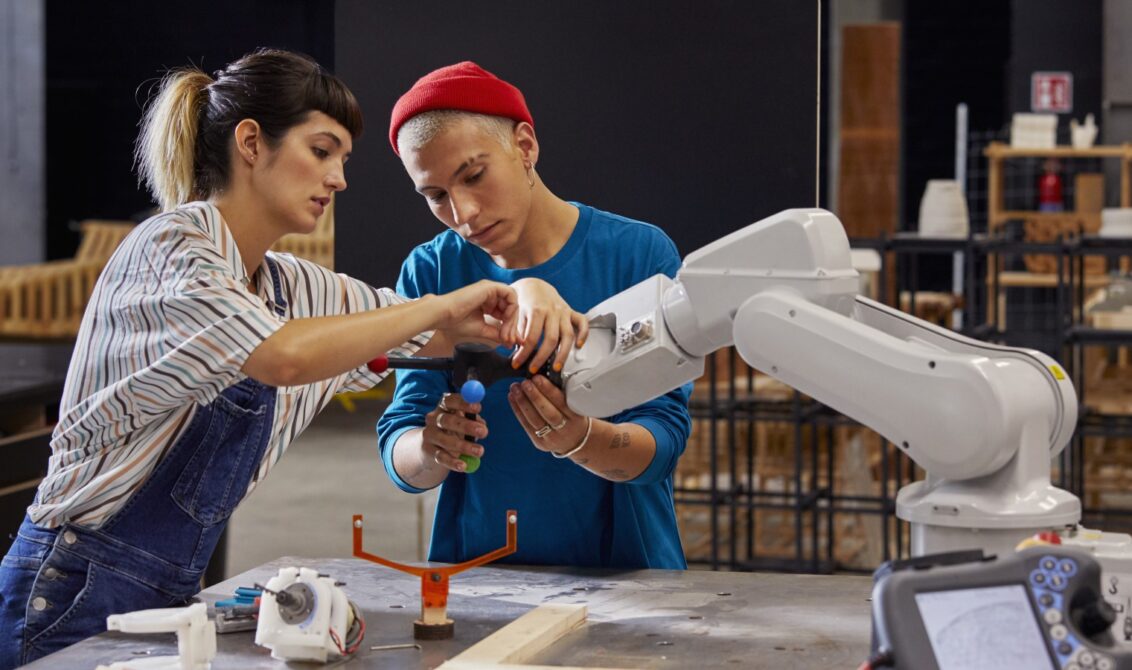
International students need more than just ‘knowledge’ to be successful. It’s not enough to learn facts and methods. It’s also about knowing when to apply the knowledge and methods, about having the mental dexterity to deal with the unexpected, about being able to think through a problem. These things will be crucial in the exam. In other words, it’s about skills as well as knowledge.
What are transferable skills?
It’s likely you’ll have heard about these skills before – skills like:
- problem-solving
- independent research
- critical-thinking
- team-working
- self-directed study
- self-awareness
- and time-management.
We can call them ‘transferable skills’ because they can be transferred to different contexts outside of the context (which may or may not be part of a formal study programme) in which they are learnt. These very same skills, taken together, act like a ‘How to learn’ toolkit that enable a person to go on learning, and to learn different kinds of things in different environments.
International students need transferable skills to be successful in the workplace
One key different environment will be the workplace. The skills that employers look for when hiring, and that enable someone to adapt and thrive once they’ve landed that first job, are the same transferable skills. Statistics show that shortage of these skills is a key challenge for employers globally. 38% of employers say they have difficulty finding people with the skills they require, and 54% of companies say that skills shortages impact their ability to serve their customers.
Employers are looking for well-rounded individuals – and this goes beyond the achievement of top grades. Hiring managers need to ensure that new hires are prepared for the rigour and demands of work. This is why you’ll see these these skills popping up in job descriptions time and again next to demands for technical qualifications. They’re that important!
Transferable skills enhance academic success and employability
Knowledge can be acquired more quickly than skills. It can also be lost more easily. We can forget previously learnt knowledge as we acquire new knowledge. Skills, on the other hand, must be developed early on – the earlier the better – and fine-tuned over a long period of time. Family, friends and school all play crucial parts. And once they’re there, skills stay with us for life, enabling us to learn the new things we need, to think around problems and to work independently and collaboratively as needed.
A good international education should enable students to start developing transferable skills as early as possible. In doing so, by fostering and developing transferable skills in learners, it will ensure that education not only means academic success, but also employability.
How our International GCSEs (9-1) develop transferable skills
Our goal at Pearson is to help people make progress in their lives by achieving success in their exams and by building and sustaining a career. Our Pearson Edexcel International GCSE (9-1) qualifications, and the resources to support them, specifically develop transferable skills. They’re embedded into the textbooks and online learning materials, and because research has shown that if someone understands what skills they’re using and developing, they learn these skills more effectively – they are clearly signposted (you’ll see the specific skills labelled in the margin, next to the exercise or example).
Ensuring that skills opportunities are explicitly signposted in our qualifications in this way, alongside subject knowledge, helps students understand what skills they’re developing. They’ll also be able to talk about what skills they have and, crucially, give examples.
We believe this is the best way to support skills development, giving learners the best possible opportunity to develop the skills they need to achieve academic success, and become the well-rounded and capable individuals that employers need.
Further reading
Why transferable skills are good for you – not just at school or university
Bringing transferable skills out of the vacuum and into the open
Sign up to receive our blog updates
Like what you read and want to receive more articles like this direct to your inbox? Subscribe to our blog and we’ll send you a fortnightly digest of the blog posts you may have missed, plus links to free resources to support your teaching and learning.

